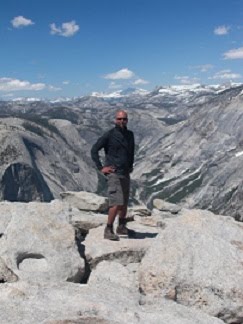Its a real shame, but I will probably not rememember Nicaragua for its picturesque colonial towns, the four volcanos that I climbed up to enjoy spectacular views and at the low price of GBP 4.50, one of the cheapest hotel rooms I have stayed in so far on my travels through Central America.
Instead, I will remember Nicaragua for the greasy, golden-toothed individual that came close to seperating me from my wallet, the hotellier that tried to seperate $35 from my wallet for accidentally breaking her rickety old table, and of course, I will remember that there were far too many Gringos in the country, probably the most I have come across in my travels thus far.
Leon and Granada in Nicaragua were the American equivalent of Malaga and Benidorm for the British, towns with far too many expats forcing their own way of life on a culture that was much better before they arrived. When I go to Spain, I don't want to eat fish and chips, see Union Jacks hanging from windows and hear loud English accents at every turn. Similarly, when I come to Nicaragua, I don't want to drink in a bar with all the Major League Basemall team jerseys on the wall and eat dough-based cakes in Kathy´s Waffle House, and hear loud Americans tell me to have a good day.
Camilo, my excellent Granadan tour guide to Volcans Masaya amd Mombacho explained that the Nicaraguan goverment is actually encouraging this Gringo influx, by offering tax-free living for 10 years for any foreigners that start businesses in the country. Apparently 80% of the Nicaraguan population are under the age of 30 as a result of the civil war that ended in the late 1980´s, and the country relies heavily on the foreign investment to create jobs for its young population.
Calle La Calzada, or Gringo Street as Camilo humourously referred to it because of the large American presence in Granada´s main street, had a bar owned by Americans, an bar owned by an Irishman and a tour company part owned by a Dutchman. Pali, Nicaragua's largest supermarket chain was bought over by a certain Walmart family two years ago. The locals are getting jobs, but the rich foreigners are getting richer off the fat of Nicaragua's land.
From my perspective, Nicaragua (and poorer countries in general) need foreigners to invest in its people, not its country. It needs local entrepreneurs to be given the opportunity to create locally owned businesses, and not the opportunity to work for foreign-owned busineses and help extranjeros get richer and richer. Camilo my volcano guide graduated with a degree in business studies at university, and has plans to raise some capital and start his own tour company and stop working for the Dutchman. I really hope he succeeds.



